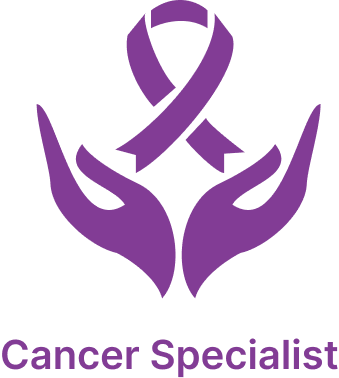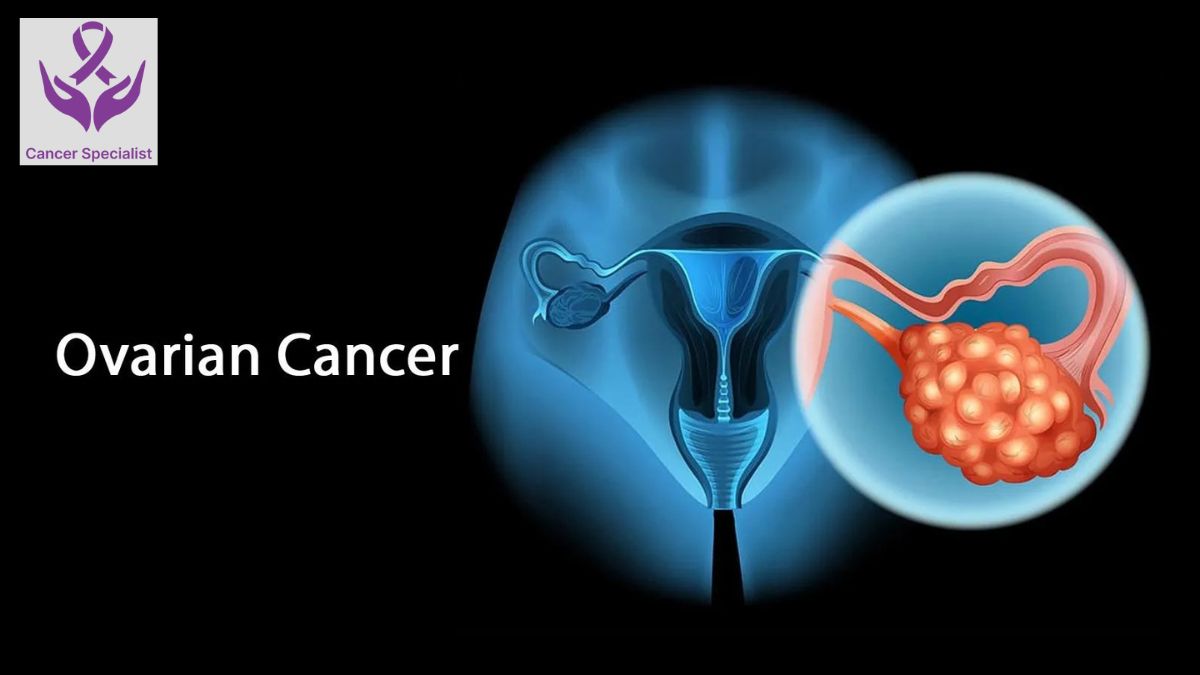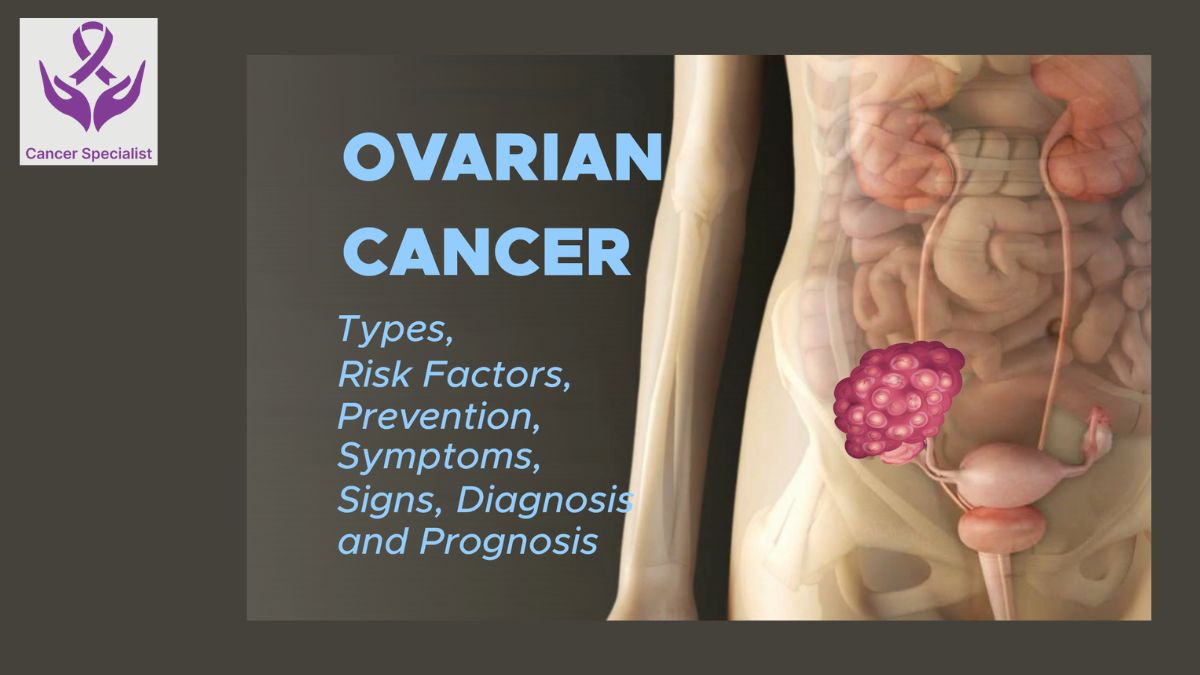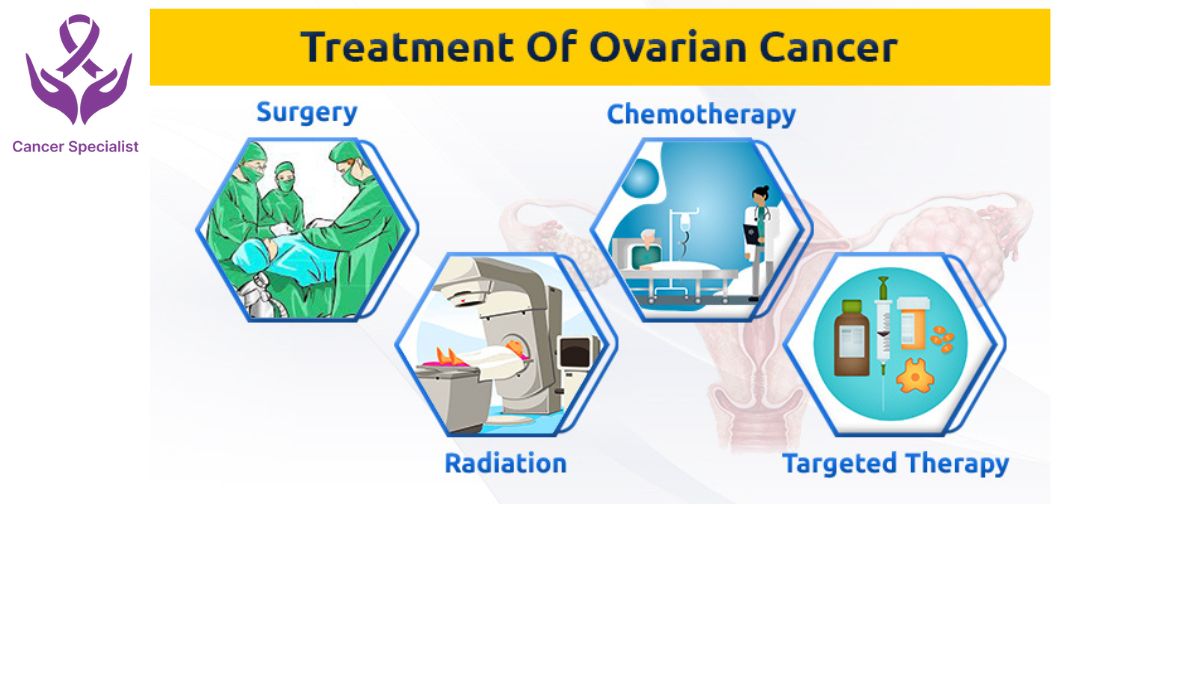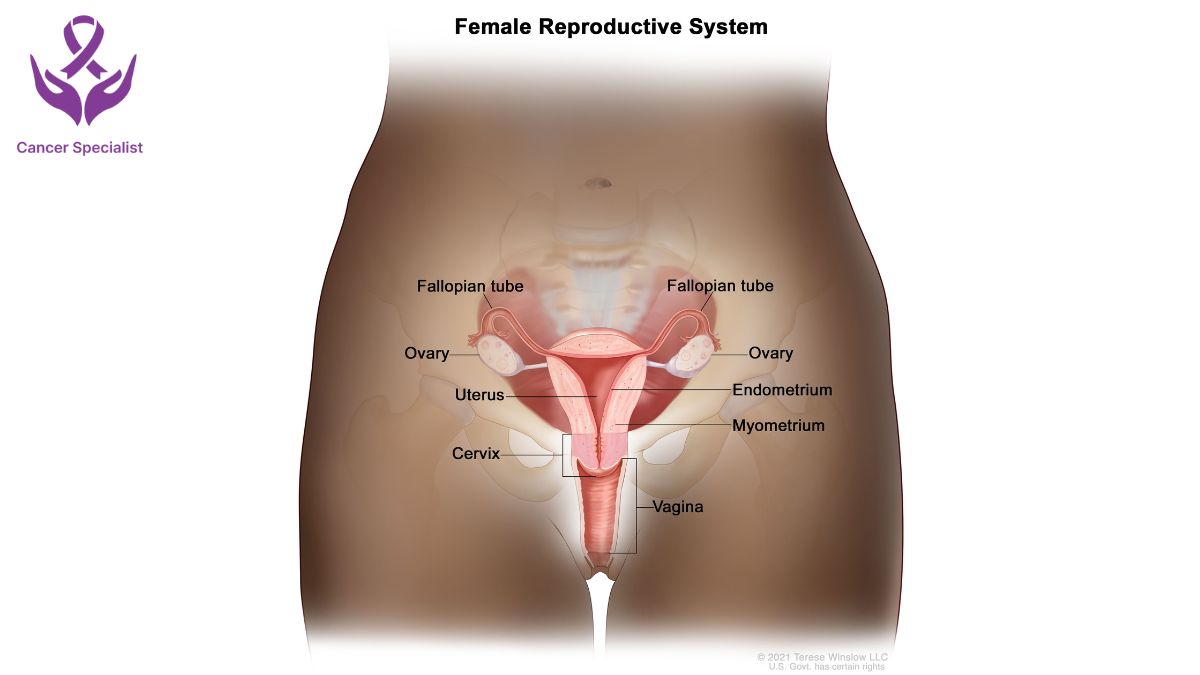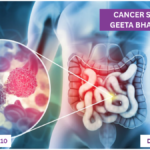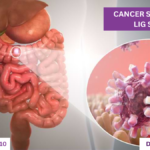Hearing the word cancer can feel like the ground is shifting beneath your feet. When it comes to ovary cancer, the emotions can be even more overwhelming because the disease is often called the “silent killer” due to its subtle early signs. If you or a loved one is facing this diagnosis, it’s natural to feel scared, uncertain, and full of questions.
In these moments, the role of a Cancer Specialist becomes vital. They are not just medical experts; they are guides who bring hope, clarity, and personalized treatment to patients. This article aims to shed light on ovary cancer in simple terms, while also emphasizing the importance of consulting a trusted specialist for accurate diagnosis, compassionate care, and effective treatment.
Table of Contents
ToggleWhat Is Ovary Cancer and Why Does It Matter?
Ovary cancer starts in the ovaries, the female reproductive organs responsible for producing eggs and hormones like estrogen and progesterone. It’s one of the most serious gynecological cancers because it often goes undetected until it has spread.
A Cancer Doctor explains that early detection significantly improves survival rates, but many women confuse symptoms with common digestive or urinary issues. That’s why awareness and timely medical advice are so important.
What Are the Common Symptoms of Ovary Cancer?
Many women don’t realize that the early signs of ovary cancer can be subtle. According to experienced oncologist, the following symptoms should not be ignored:
- Persistent bloating or abdominal swelling
- Pelvic or lower back pain
- Difficulty eating or feeling full quickly
- Frequent urination or constipation
- Fatigue or unexplained weight loss
If these symptoms last more than two weeks, it’s important to consult a Cancer Specialist for proper evaluation.
What Are the Risk Factors for Developing Ovary Cancer?
Not everyone with risk factors will develop the disease, but knowing them can help in prevention and early diagnosis. Factors include:
- Family history of ovarian or breast cancer
- Genetic mutations like BRCA1 or BRCA2
- Age (most common after menopause)
- Hormone replacement therapy (HRT)
- Endometriosis
A Cancer Doctor may recommend genetic counseling and preventive strategies for women with a strong family history.
How Do Cancer Doctor Diagnose Ovary Cancer?
Diagnosis is a step-by-step process. A specialist usually begins with:
- Pelvic examination to feel for abnormalities
- Ultrasound or CT scans to detect tumors
- Blood tests like CA-125 to look for tumor markers
- Biopsy to confirm cancer
Because symptoms overlap with other conditions, an experienced Cancer Specialist is crucial for an accurate diagnosis.
What Treatment Options Are Available for Ovary Cancer?
Treatment depends on the stage and overall health of the patient. A Cancer Doctor may recommend:
- Surgery – Removal of one or both ovaries, sometimes including the uterus and fallopian tubes.
- Chemotherapy – Drugs to kill or shrink cancer cells.
- Targeted therapy – Medications that focus on specific cancer cell mechanisms.
- Immunotherapy – Boosting the body’s immune system to fight cancer.
Many women benefit from a combined approach, carefully planned by their specialist for the best outcomes.
How Can an Oncologist Provide Support Beyond Treatment?
A diagnosis doesn’t just affect the body, it impacts emotions, family, and overall well-being. A Cancer Specialist also provides:
- Emotional support and counseling referrals
- Nutritional and lifestyle guidance
- Post-treatment monitoring to prevent recurrence
- Palliative care to manage symptoms in advanced stages
By building a strong patient-doctor relationship, a specialist ensures that treatment is not just medical, but also compassionate.
What Lifestyle Changes Can Help During and After Treatment?
Living with or recovering from ovary cancer requires strength and adaptability. Patients can improve their health outcomes with small changes:
- Eat a diet rich in fruits, vegetables, and whole grains
- Stay physically active with light exercises like walking or yoga
- Get adequate rest and practice stress-relieving activities
- Stay connected with loved ones for emotional support
- Attend all follow-up visits with your specialist
These steps, along with medical guidance, help patients rebuild confidence and quality of life.
Why Is Choosing the Right Cancer Specialist So Important?
Not all doctors have the same level of expertise in managing complex cancers like ovarian. Choosing the right Cancer Doctor ensures:
- Accurate diagnosis with advanced tools
- Access to the latest treatment protocols
- A personalized plan designed for your health condition
- Higher chances of survival and long-term recovery
Look for qualifications, patient reviews, and hospital facilities when selecting an oncologist.
Real-Life Example: How Expert Care Brings Hope
Consider a patient, Mrs. Sharma, who ignored her bloating and fatigue for months. By the time she saw a specialist, she was diagnosed with Stage 2 ovary cancer. With a combination of surgery and chemotherapy, along with emotional guidance, she successfully recovered and now leads an active life. Stories like hers highlight why timely consultation with a Cancer Specialist can make all the difference.
Frequently Asked Questions (FAQs)
- What is the first sign of ovary cancer?
The most common early signs include bloating, pelvic pain, and feeling full quickly. A specialist can confirm if these symptoms are linked to cancer. - Can ovary cancer be cured completely?
Yes, if detected early, ovary cancer can often be cured. Treatment success depends on the stage, overall health, and care provided by an oncologist. - Who should see a specialist for ovary cancer risk?
Women with a family history of ovarian or breast cancer, or those with genetic mutations like BRCA, should consult an oncologist. - Does ovary cancer always require surgery?
Not always. A Cancer Doctor may recommend chemotherapy or targeted therapy based on individual cases. Surgery is common but not the only option. - How can I lower my risk of ovary cancer?
Maintaining a healthy lifestyle, regular checkups, and consulting a specialist if you have risk factors can help reduce your risk. - What is the survival rate for ovary cancer?
It depends on the stage of diagnosis. Early detection by a specialist can lead to survival rates above 90%.
Conclusion
Ovary cancer may be challenging, but it is not unbeatable. With awareness, early detection, and the guidance of a dedicated specialist, patients can fight the disease with strength and hope. If you or someone you love is experiencing symptoms or has risk factors, don’t wait, reach out to an oncologist for timely care. Remember, the right treatment at the right time can save lives.
